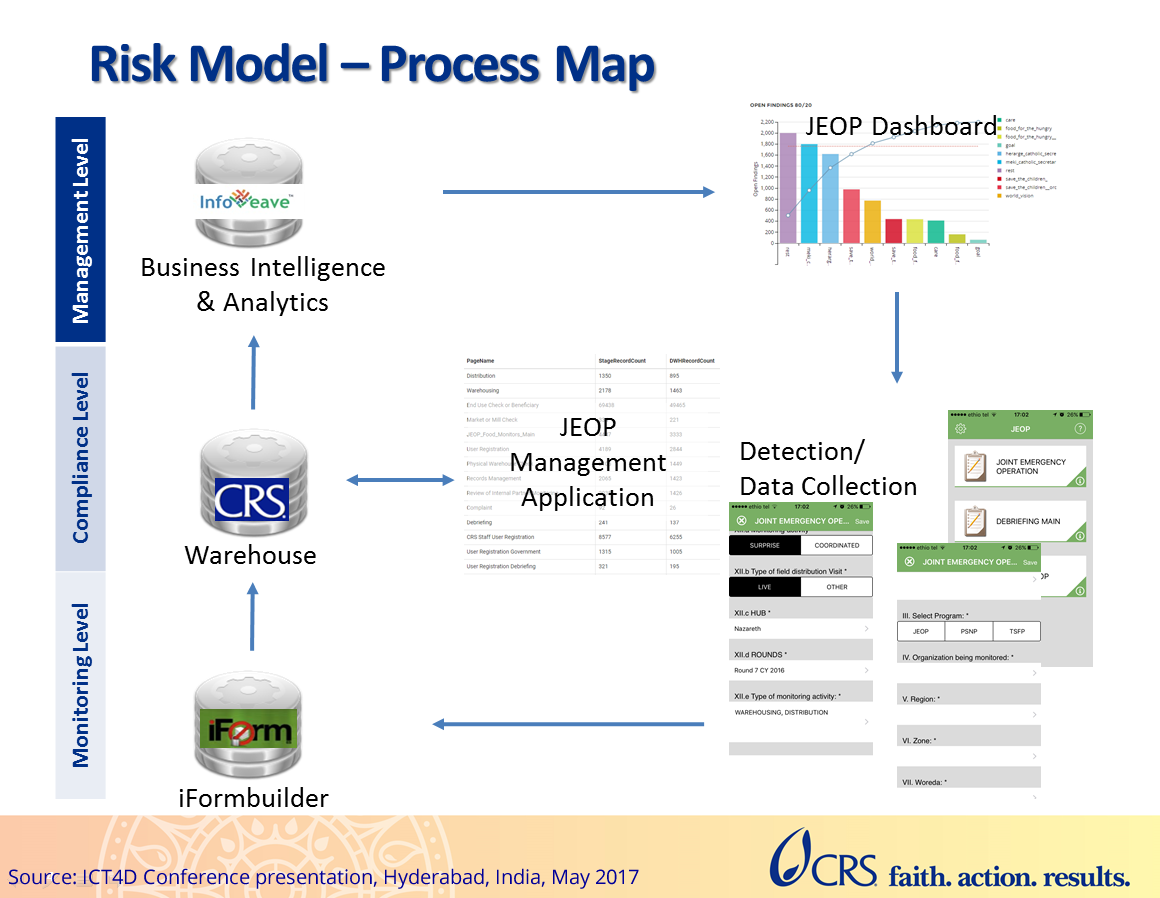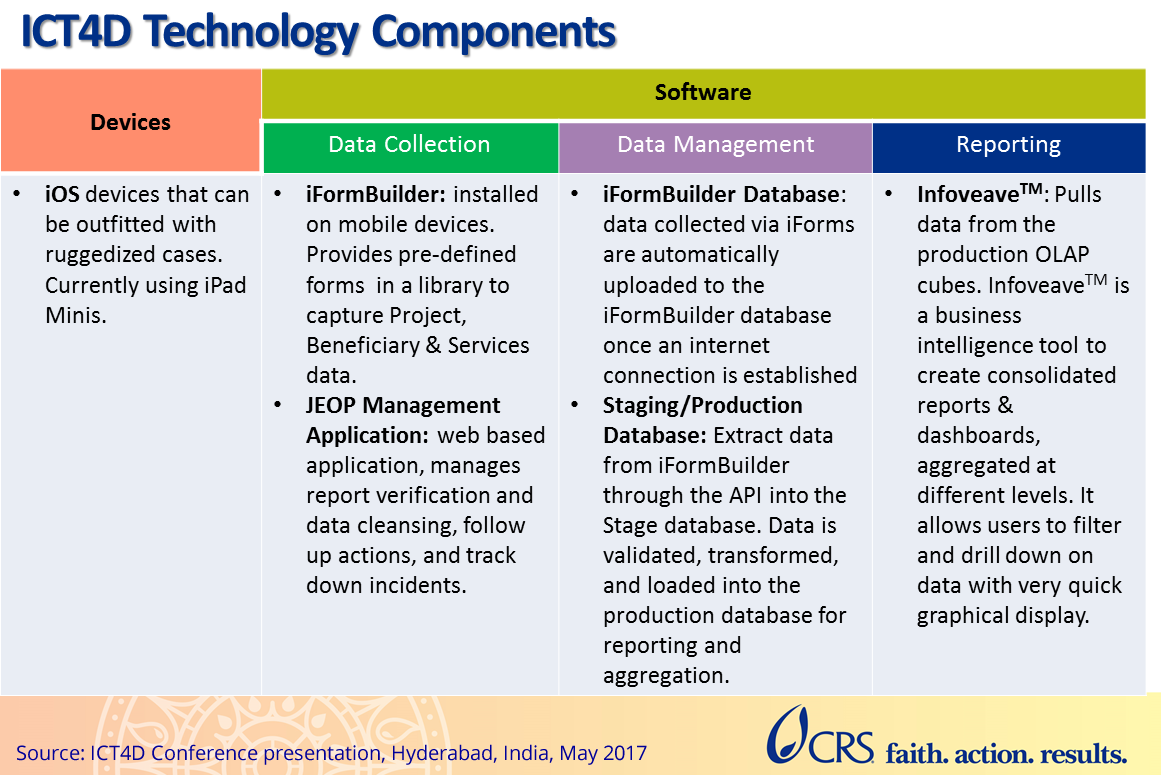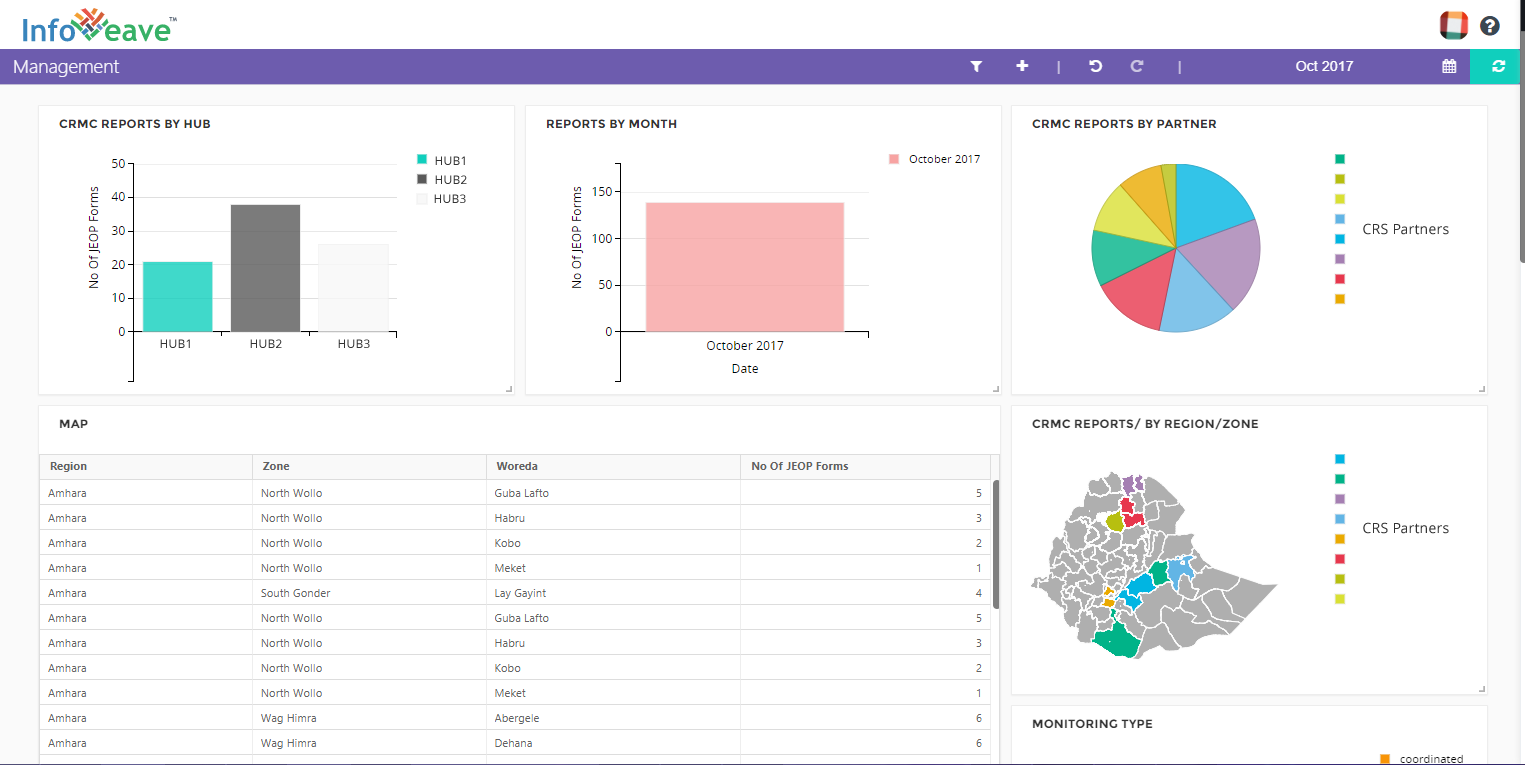In a recent article by Catholic Relief Services (CRS) published on ICTWorks.org, CRS highlights their very successful food monitoring program (USAID funded) in Ethiopia as part of the Joint Emergency Operation (JEOP). This program focuses on monitoring the “last mile”, distributing food to over 3 million constituents. A risk management model using field based data was developed to identify and manage risk and compliance factors such as warehouse and market location, warehouse management and local distribution channels. Using the generated risk index, CRS knows where to relocate staff and other resources to proactively avoid losses as well as identify social and environmental conditions such as political instability, community location and other factors that may require closer management of resources. Project Balance was engaged by CRS to develop a system that pulls monitoring data collected in the field on tablets, identifies data discrepancies, provides a data approval work flow and displays risk and other monitoring data in a series of dashboards. In her article on ICTWorks.org, Madison Lawson, ICT4D Training and Communications Assistant, writes “JEOP’s risk management system is an incredible innovation that has taken complex data and algorithms and made it actionable with direct and immediate benefit to the recipients.”
Project Balance’s Contribution
The JEOP system collects warehouse management and security indicators as well as monitors the distribution of food in low resource communities through the use of 13 data collection forms and sub-forms on tablets, through IFormBuilder. Data is pulled from CRS’ iFormBuilder data repository on the cloud, transformed and loaded into a data warehouse. As well, through the data management application, data is verified and approved; food monitoring issues are tracked through the monitoring process by CRS JEOP staff and Implementing Partners. The data management application identifies data exceptions and displays records that do not pass embedded business rules, so that they can be addressed by team members. The food monitoring data and the updated issues data is combined to present a full picture of the risks and issues across 76 Woredas (districts) and 315 distribution points. The business intelligence tool, Infoveave™ displays many different data visualizations including maps, graphs, tables and text widgets to create a comprehensive dashboard system that is used for managing the program. (See diagram and table below for data flow process.)


Project Balance developed the automated extract, transform and load routines from iFormBuilder to the CRS/JEOP warehouse. We developed the JEOP management application as well as configured dashboards in Infoveave™. This system went into production in January 2017 and is actively used by the JEOP team. Project Balance continues to provide software support.





